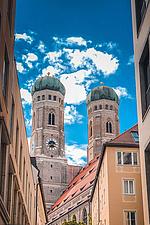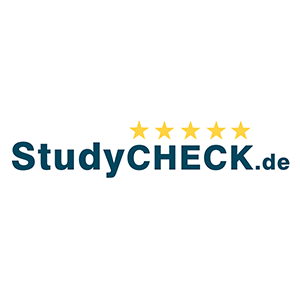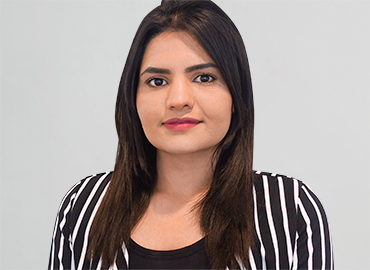This Website uses cookies to improve your visit on our website. More Info
Study Finder
- MBS QUICK FACTS:
- State recognized since 1999
- September
- 18 or 24 Months
- English
- Book a consultation appointment
To help prospective students understand their options, below is a brief overview of three marketing-focused master’s programs offered by universities in Germany. Each program has its own emphasis, structure, and career outlook, providing a diverse range of opportunities for those interested in advancing their expertise in marketing and brand management.
This program focuses on strategic brand management, consumer behavior, and digital marketing within an international business context. It combines academic rigor with practical application through case studies, business projects, and internships. The course emphasizes leadership and innovation.
Fresenius offers a practice-oriented program that blends core marketing concepts with brand strategy, communication, and digital tools. Students benefit from some industry ties, applied projects, and current market trends. The program is designed to prepare graduates for roles in brand development, market research, and campaign planning.
This program provides a broad foundation in business management alongside specialized training in marketing, covering topics like digital strategy, consumer analytics, and global branding. It is tailored for students aiming to work in international and tech-driven environments. The curriculum emphasizes both theoretical insight and practical business skills.
The following special features play a role in one or more of the Master's degree programs in Marketing at Munich Business School, Fresenius University of Applied Sciences, and Gisma University of Applied Sciences. They provide insight into the content, structure, and special features of the programs in Germany in English and illustrate how these degree programs promote practical learning, individual design options, and international experience.
Below, we briefly explain what the concepts and terms used in the Master's program in Marketing in Germany in English mean.
Elective courses give you the opportunity to choose the modules that match your interests and career goals, allowing you to tailor your studies to your individual needs. In many degree programs, you can choose more than one elective course.
A degree program with an international focus prepares you for the challenges and opportunities of global markets through intercultural content, languages and often international experiences such as semesters abroad.
A semester abroad allows you to study at a partner university in a foreign country, gain international experience and improve your language and intercultural skills.
An internship is a practical experience in a company where you apply your theoretical knowledge, gain professional insights and make valuable contacts.
A double/dual degree enables you to earn two master's degrees in just one period of study, often by spending an additional semester at a partner university abroad. This broadens both your professional qualifications and your international career opportunities.
A mentoring program connects you with experienced professionals or alumni who are ready to provide valuable advice, career tips, and personal support.
This is an additional offer to help students learn or improve their language skills (especially in German) in order to prepare for an international or possible German career.
A business project is a real-world project in which you work in teams to analyze real business problems and develop innovative solutions, often in collaboration with a partner company.
Case studies are practical analyses of real or fictional business situations in which you are required to solve specific problems and make strategic decisions – ideal for applying theory directly.
The Hybrid Learning Scheme is a learning model that combines face-to-face teaching with digital teaching formats, allowing you to switch flexibly between on-site participation and online study.
The accreditation of the university is an important indicator of the quality and recognition of its degree programs. Institutions such as the Ministry of Education, FIBAA, the Science Council, and renowned international accreditation organizations such as AMBA, AACSB, and EQUIS examine the academic excellence, practical orientation, and international standards of universities. Below, we take a look at the most important accreditations for Master's degree programs in Marketing in Germany in English.
| Munich Business School | Hochschule Fresenius | Gisma University of Applied Science | |
|---|---|---|---|
| German Ministry of Education | ✔️ | ✔️ | ✔️ |
| FIBAA | ✔️ | ❌ | ✔️ |
| German Council of Science and Humanities | ✔️ | ✔️ | ❌ |
| AMBA | ❌ | ❌ | ✔️ |
| AACSB | ✔️ | ❌ | ❌ |
| EQUIS | ❌ | ❌ | ❌ |
Internationality plays a significant role at all three universities, though each emphasizes it in slightly different ways:

Munich Business School places a strong focus on international business education, offering a globally-oriented curriculum, diverse student body, and mandatory study-abroad components. It actively promotes intercultural learning and partnerships with universities worldwide.
Fresenius University of Applied Sciences integrates internationality through bilingual programs, global case studies, and exchange opportunities. While slightly more regionally grounded than Munich Business School, it still maintains an international network and attracts students from various countries.
Gisma University of Applied Sciences is international in both structure and student demographics too. With campuses catering to a big audience and a curriculum designed for the international job market, Gisma emphasizes global business perspectives and sometimes collaborates with international companies and academic institutions.
In the table below, we have summarized the key facts about the various Master's programs in Marketing offered by the three universities, MBS, HS Fresenius and Gisma.
| Munich Business School | Hochschule Fresenius | Gisma University of Applied Science | |
|---|---|---|---|
| Degree program | Master International Marketing and Brand Management | Master Marketing and Brand Management | Master Business Management and Marketing |
| Final degree | Master of Arts | Master of Science | Master of Science |
| Duration | 3 Semesters | 4 Semesters | 2–4 Semesters |
| Study program language | English | English | English |
| Start of studies | Winter semester | Winter & summer semester | Winter & summer semester |
| Location | Munich | Cologne, Berlin | Potsdam |
| Format | Full-time study | Full-time study | Full-time or part-time study |
| Numerus Clausus | No Numerus Clausus | No Numerus Clausus | Not specified |
| Recognition | State-recognized & accredited | State-recognized & accredited | State-recognized & accredited |
| Study requirements | Bachelor's degree in a related subject or, alternatively, a pre-master's degree is possible; under certain circumstances, admission is also possible without a bachelor's degree; proof of English language proficiency through a test or a previous degree obtained in English | First degree in a related field: with certain credit points, English language skills at level B2 or higher | BA degree in a related subject, English language skills at B2 level or higher |
| Scholarship opportunities? | Yes, up to €4,000 in funding | No | No |
| Thesis | Master's thesis in German or English | Master's thesis | Master's thesis |
| Special features | Dual degree possible, 2 Elective courses, International focus, Business project, Semester abroad or Internship possible, Mentoring program | Project work, Case studies, Elective course, Internship possible | Hybrid learning scheme (partly on-site, partly e-learning), possible stay abroad or internship or Business project, Elective subject, Double Degree possible |
Do you want to find out what the difference is between a Master of Arts and a Master of Science?
For more information on this topic, please visit our dedicated page.
Difference between a M.A. and a M.Sc.The location that is best suited to your Master in Marketing in Germany in English depends on your personal preferences and goals. The choice should be based on your budget, industry, and lifestyle. Here is a brief overview of the three locations Munich (MBS), Cologne (HSF), and Potsdam (GISMA) for a Master in Marketing in Germany:
| Munich | Cologne | Potsdam | |
|---|---|---|---|
| Economy | 10/10 | 7/10 | 3/10 |
| Internationality | 9/10 | 8/10 | 2/10 |
| Networking Opportunities | 9/10 | 6/10 | 1/10 |
| Infrastructure | 10/10 | 8/10 | 6/10 |
| Quality of Life | 10/10 | 7/10 | 8/10 |
| Cost of Living | 2/10 | 5/10 | 6/10 |
| Student Life | 8/10 | 8/10 | 3/10 |
| Nature | 10/10 | 6/10 | 8/10 |
| Recreational Possibilities | 10/10 | 8/10 | 3/10 |
| Culture | 9/10 | 8/10 | 6/10 |
| 87/100 | 71/100 | 46/100 |
Graduates of all three marketing-focused degree programs have strong career prospects, particularly in international and dynamic business environments, though each program offers slightly different pathways based on its focus:

MBS graduates are well-prepared for leadership roles in international marketing, brand management, and strategic communication. Thanks to the school's strong corporate connections and focus on practical experience, many alumni go on to work for multinational companies, consultancy firms, or start their own ventures.
The HS Fresenius prepares students for careers in brand strategy, market research, digital marketing, and campaign management. The program’s applied approach and industry collaborations enable graduates to enter both corporate and agency settings, often in mid- to upper-level marketing roles.
Gisma graduates typically pursue careers in global business and digital marketing environments, including roles in product marketing, analytics, and marketing management. The degree’s emphasis on business and training supports employment in tech-oriented sectors or multinational firms.
The experiences of alumni are a decisive factor when it comes to choosing the right Master's program in Marketing in Germany in English. Reviews on platforms such as StudyCheck give you authentic insights into the quality of the program, support, and career opportunities from the perspective of former students. Below, we compare the reviews of the three master's programs offered by Munich Business School, Hohschule Fresenius, and Gisma University of Applied Sciences to provide you with a solid basis for your decision.

These ratings come from the German rating portal StudyCHECK.de. The ratings are current as of May 8, 2025.
★★★★☆ 4,3
99% would recommend
★★★★☆ 3,9
100% would recommend
★★★★☆ 3,8
90% would recommend
★★★★☆ 4,0
100% would recommend
★★★★☆ 4,0
67% would recommend
Not available & no ratings!
Munich is one of the best cities in Germany for studying marketing due to its strong economy and concentration of global companies such as BMW, Siemens, and Allianz. The city offers excellent opportunities for internships, networking, and post-graduate employment, particularly in sectors like technology, finance, and media. It is also known for its safety, organization, and high quality of life.
Challenges:
Munich is also one of the most expensive cities in Germany. Rent and general living costs are significantly higher than in most other German cities, which can be a challenge for students. In addition, the job and housing markets are highly competitive.
Cologne is a great option for marketing students interested in media and communications, as it hosts major German broadcasters like RTL and WDR. The city has a vibrant, creative atmosphere and a large student population, making it an engaging place to live and study. Compared to Munich, the cost of living in Cologne is more affordable.
Challenges
On the downside, Cologne has fewer large multinational corporations, so job opportunities may be more concentrated in the media sector and smaller regional businesses. This can limit options for students looking to enter broader fields of marketing.
Potsdam offers a quieter and more scenic study environment, ideal for students who prefer a calm atmosphere. The cost of living is lower than in larger cities, and its proximity to Berlin means that students can still access the capital’s job and internship market while enjoying a more relaxed lifestyle. The city is also home to respected research institutions and universities.
Challenges:
However, Potsdam itself has a smaller local job market, particularly in the marketing field. Students may need to commute to Berlin for work experience or career opportunities. The city’s slower pace might not appeal to those seeking a highly dynamic or fast-paced environment.
Marketing studies focus on understanding consumer behavior and learning how to develop, promote, and sell products or services effectively, combining elements of business, psychology, communication, and strategy.
With a degree in Marketing from Germany, you can pursue careers in brand management, digital marketing, market research, sales, or advertising, often with opportunities in international companies due to Germany's strong global business presence.
Yes, Marketing studies in Germany in English are generally of high quality, with well-structured programs and proficient instruction by lecturers fluent in English.
Yes, Marketing studies in Germany in English are worthwhile, as they offer internationally recognized degrees, access to a global job market, and exposure to diverse perspectives in a strong economic environment.
The benefits of Marketing studies in Germany include high-quality education, affordable tuition, international study environments, and strong industry connections, especially in Munich, that enhance career prospects.

